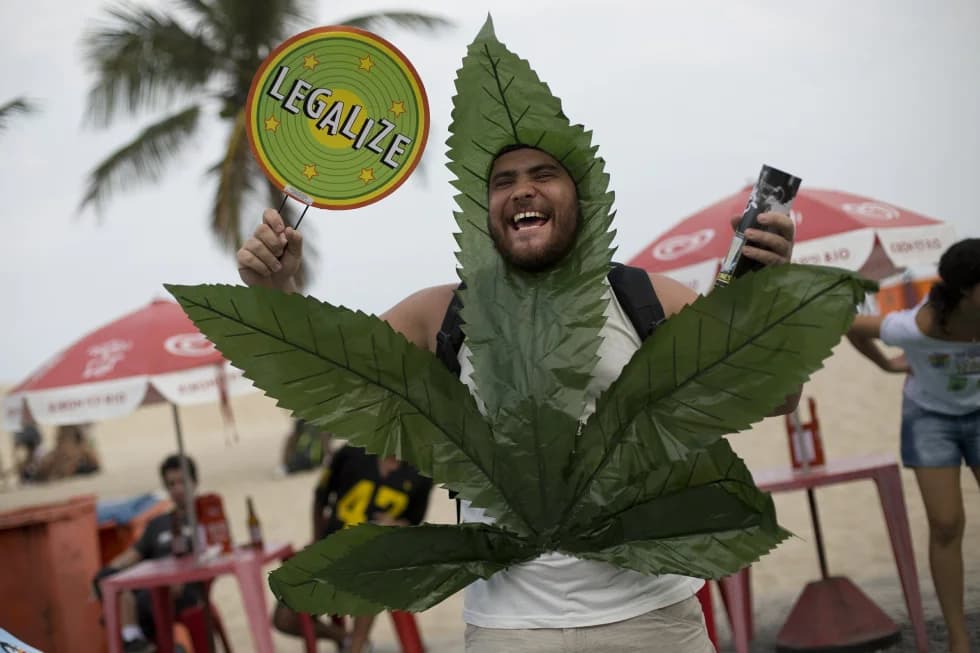SÃO PAULO – As Brazil’s Supreme Court and Congress find themselves at odds over the decriminalization of marijuana possession, the same clash runs through the church in the world’s largest Catholic country, with some believers urging a hard line and others insisting the last thing Brazil needs is a new “war on drugs.”
Lawyer Miguel Vidigal, who heads the Brazilian Union of Catholic Jurists, is among those adamantly opposed to calls for decriminalization.
“Studies show that marijuana is the entrance door for other drugs. It cannot be decriminalized,” Vidigal told Crux. “Drugs are an evil in itself. They cause health, psychological, and spiritual damages.”
Father Valdir Silveira, however, disagrees.
After more than 18 years working with prisoners as head of the episcopal conference’s “Prison Pastoral Ministry,” he thinks the criminalization of drugs has only contributed to expanding Brazil’s penal population.
“The policy of criminalizing all drugs in all situations has resulted in the current crisis: Mass imprisonment and growing violence,” Silveira told Crux.
Those contrasting Catholic reactions more or less mirror the broader national divide.
While Brazil’s Supreme Court, currently led by liberal Chief Justice Luis Roberto Barroso, is analyzing the constitutionality of decriminalizing the possession of small amounts of marijuana, the country’s senate is debating a bill that would criminalize individuals carrying any amount of the drug whatsoever.
A so-called “drug act” approved in Brazil in 2006 determined that drug users shouldn’t be punished as traffickers, but it failed to establish a maximum amount of possession that would differentiate a user from a dealer.
Up to this point, five justices have voted for the decriminalization of the possession of small portions of marijuana, without fixing a precise total, while three others have voted against it.
One of the justices asked March 6 for more time to evaluate the case. He has now up to 90 days to return the file to the court, and only then voting will be resumed.
Over the past few years, several segments in Brazilian society have complained that the Supreme Court increasingly has been assuming the role of a legislator, taking over some of the congress’s responsibilities.
Last year, such clashes accelerated when justices analyzed themes that have major political significance, such as the conditions for Indigenous peoples to claim their traditional territories.
A number of lawmakers are part of a so-called “rural bloc,” and want to restrict land grants for Indigenous groups. The Supreme Court ruled last year that suggested restrictions were unconstitutional, but congress passed a law establishing them anyway. Now the court has to analyze the law and potentially declare it unconstitutional, something that may take several months.
Similar conflicts have occurred in other arenas. A majority of current members of congress are conservative, often supported by right-wing Christian groups, big landowners, or the armed forces. Many are aligned with former President Jair Bolsonaro, and see the Supreme Court as overly activist.
It was the Senate’s President, Rodrigo Pacheco, who introduced the anti-marijuana bill. His idea, observers say, is to make clear to the Supreme Court that it’s up to congress to make that kind of decision. If his bill is approved, the Supreme Court’s decision concerning the potential decriminalization of the possession of marijuana would become invalid.
When the debate over marijuana first began in the Supreme Court in 2015, the bishops’ conference released a statement in which it opposed the decriminalization of drugs, arguing that it could increase drug addiction in the nation.
The episcopate defended back then that decriminalizing drugs would expand their circulation, especially among teenagers, and more and more families would be impacted by the problems they generate.
Vidigal echoed that view, arguing that using drugs is not a matter of individual freedom, given that “they impact the whole society and thus are a collective problem,” he said.
“It is fallacious to say that the state shouldn’t regulate drugs. Society suffers their effects,” he added.
Yet Silveira questioned that assertion, arguing there are no studies showing that decriminalizing drugs is worse for society in terms of violence.
“We cannot make decisions without a scientific basis. Unfortunately, that debate is completely dominated by emotional arguments,” he said.
Silveira conceded that drug use is bad, but said that “criminalization only makes things worse.”
The “Prison Pastoral Ministry” which Silveira head has argued that the 2006 drug act resulted in the disproportionate imprisonment of Black and poor teenagers. They also claim the law failed to combat drugs and led to the formation of great mafia-like criminal organizations inside penal facilities.
“We don’t need anything like that. The war on drugs causes numerous deaths and is very expensive for the state,” Silveira said.












